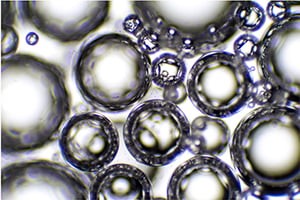Have you noticed lately that you’re producing more saliva than usual? Excessive saliva, a condition known as ptyalism or hypersalivation, can be more than just a nuisance. While saliva is crucial for oral health and digestion, an overproduction can lead to discomfort and may signal an underlying health issue. This article will explore the common reasons behind why you might be experiencing excessive saliva, what ptyalism is, its potential causes, and how it can be managed.
What is Ptyalism (Hypersalivation)?
Ptyalism, also known as hypersalivation, is the clinical term for excessive saliva production. Saliva plays a vital role in our mouths. It aids in swallowing, helps digest food, and protects our oral cavity from infections. However, when the salivary glands produce too much saliva, it can become problematic. Signs of ptyalism include needing to swallow more frequently, spitting, or experiencing drooling. Beyond the physical discomfort, excessive saliva can also lead to bad breath, chapped lips, and even a diminished sense of taste. In some cases, it can unfortunately contribute to feelings of anxiety, reduced self-esteem, and difficulties with speech. It’s important to understand that ptyalism itself is usually a symptom of another underlying condition rather than a disease in its own right. Identifying the root cause is key to effectively addressing the issue.
 Visual representation of excessive saliva, a common symptom of ptyalism.
Visual representation of excessive saliva, a common symptom of ptyalism.
What are the Common Causes of Excessive Saliva?
There are a variety of reasons why you might be experiencing an overproduction of saliva. Some of the most common causes include:
Pregnancy and Morning Sickness
One of the most frequent causes of increased saliva is pregnancy, particularly during the first trimester. Morning sickness, characterized by nausea and vomiting, often triggers hypersalivation in pregnant women. This is thought to be a protective reflex to coat and soothe the esophagus, especially when vomiting is frequent.
Nausea, Vomiting and Acid Reflux
Conditions that involve recurrent vomiting frequently lead to ptyalism. When you vomit repeatedly, the throat becomes irritated. In response, the salivary glands work to produce more saliva to coat and protect the throat lining, minimizing further irritation from stomach acids. This is why illnesses like food poisoning, malaria, and gastroenteritis, all of which can cause recurrent vomiting, are often associated with excessive saliva. Similarly, acid reflux, where stomach acid flows back up into the esophagus, can also irritate the throat and trigger increased saliva production as a protective mechanism.
Neurological Conditions
Certain conditions affecting neuronal muscle control can also result in ptyalism. These include neurological disorders such as cerebral palsy and Parkinson’s disease. Research indicates that a significant percentage of individuals with these conditions experience hypersalivation. For example, studies show that approximately 75% of people with Parkinson’s disease and around 37% of individuals with cerebral palsy experience ptyalism. Other neurological conditions like Down’s syndrome, mumps, and stroke can also contribute to excessive saliva. In the case of mumps, swelling of the salivary glands themselves can also exacerbate swallowing difficulties and increase saliva build-up.
Medications
Certain medications can also induce ptyalism as a side effect. Cholinergic drugs, for instance, can directly stimulate saliva overproduction or indirectly increase gastric acids, leading to acid reflux and subsequently, hypersalivation. Additionally, some seizure medications are known to cause excessive saliva. A notable example is clozapine, an antipsychotic drug, where clozapine-induced ptyalism is observed in a significant proportion, ranging from 30% to 80%, of patients taking the medication.
Other Potential Causes
Beyond these, there are several other potential triggers for ptyalism, including:
- Throat Infections: Infections in the throat can irritate the salivary glands, leading to increased saliva production.
- Dentures: New dentures, or poorly fitting dentures in older adults, can sometimes stimulate saliva flow.
- Poor Oral Hygiene: Inadequate oral hygiene can contribute to various oral irritations and potentially increase saliva production.
- Jaw Injuries: Trauma or injuries to the jaw area can sometimes affect salivary gland function and lead to ptyalism.
How is Ptyalism Treated?
Managing ptyalism usually involves a combination of approaches, both pharmacological (medication-based) and non-pharmacological (lifestyle and home care measures), aiming to address both the symptom and the underlying cause.
Pharmacological Treatments
When medication is needed, anticholinergic drugs are frequently prescribed to reduce saliva production. Glycopyrrolate is a common anticholinergic medication used for this purpose. In some cases, beta-blockers may also be considered. Botulinum toxin (Botox) injections into the salivary glands offer another treatment option, particularly when medications are not effective or well-tolerated. Botox works by temporarily blocking the nerve signals to the salivary glands, thus reducing saliva production.
Non-Pharmacological Treatments and Home Remedies
Alongside medical treatments, several non-pharmacological measures can be very helpful in managing excessive saliva:
- Hydration: Drinking plenty of water throughout the day can surprisingly help manage saliva consistency and reduce the feeling of excessive saliva. It also helps to prevent lip chapping, a common side effect of ptyalism.
- Oral Hygiene: Maintaining excellent oral hygiene is crucial, especially if your ptyalism is linked to vomiting or acid reflux. This includes regular brushing, flossing, and routine dental check-ups.
- Dietary Adjustments: Modifying your diet can also play a role. Reducing the intake of starchy foods can be beneficial, as these require more saliva to break down. Limiting sugary foods is generally good for oral health and can indirectly help. Chewing sugar-free gum can also be a helpful strategy, as it encourages swallowing and can make managing saliva easier.
When to Seek Professional Advice
If you are experiencing excessive saliva, it’s important to identify the underlying cause to determine the most effective treatment. While home remedies and lifestyle adjustments can provide some relief, persistent or severe ptyalism warrants a consultation with a healthcare professional. They can help diagnose the root cause of your hypersalivation and recommend the most appropriate management plan, which may include medical treatments or referrals to specialists if needed. For any concerns related to your oral health, including excessive saliva, consulting with your dentist is a crucial first step.